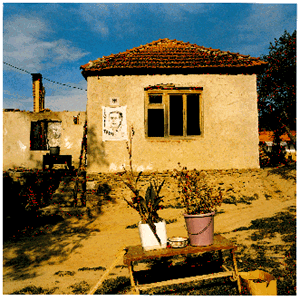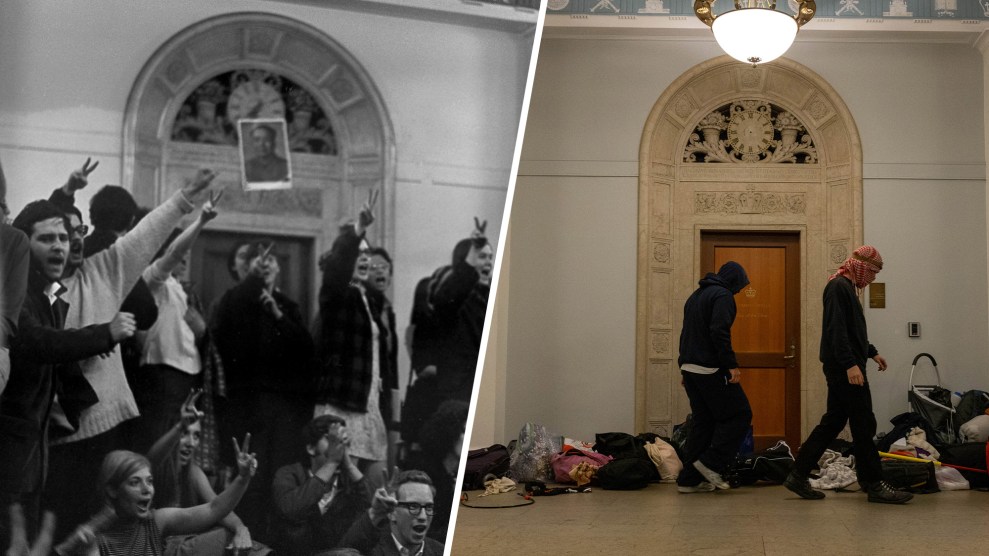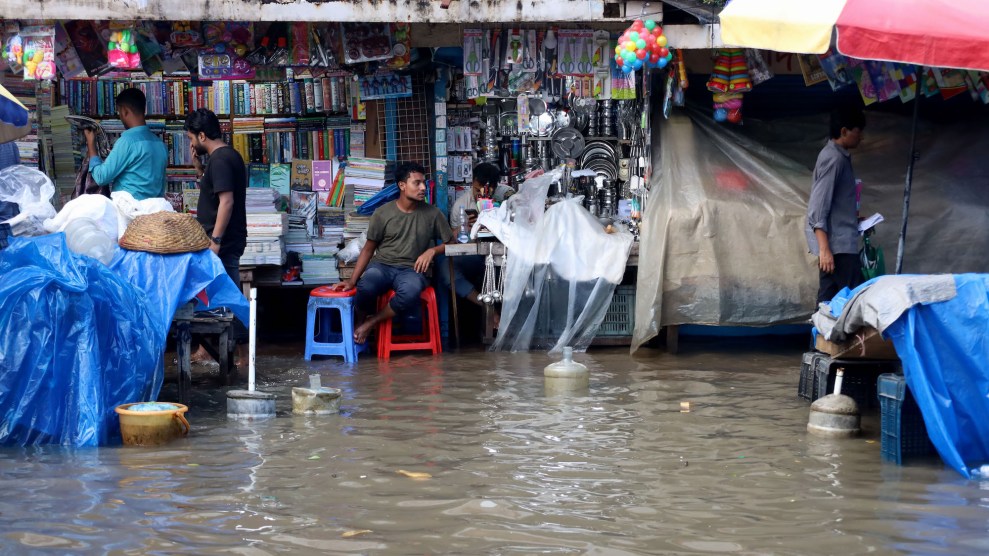
Image: Melanie Friend
The police kept shouting, “Better surrender, otherwise we will roast you like a pig and use your skin to make pockets.” My father was shouting back, “Kosova Republic,” “Never die Albania”…then the police began to beat up the children and to hold them in front of them so my father couldn’t fire. Then he started to talk to me and said, “If the bullet hits me from the back, then you may cry for me, because I’ll feel that I have handed over Kosova to Serbia. If the bullet hits me from the front, in my chest, then I don’t want any of you to cry for me.” —from Homes and Gardens (London: Camerawork, 1996)
After visiting Kosovo several times as a journalist, Melanie Friend returned in October 1994 to talk again to the people who had been subject to the Serbian regime’s “slow-motion ethnic cleansing.” Struck by the contrast of sitting in “reassuring and tranquil” living rooms and “hearing tales of torture,” she began a project that documents the “invisible trauma” of living in a police state. Pairing survivors’ graphic testimony about human rights abuses with images of where that violence took place, Friend illustrates the transformation of the most domestic spaces into the most sinister. Her work will be exhibited at the Houston Center for Photography from September 18 to November 1.















